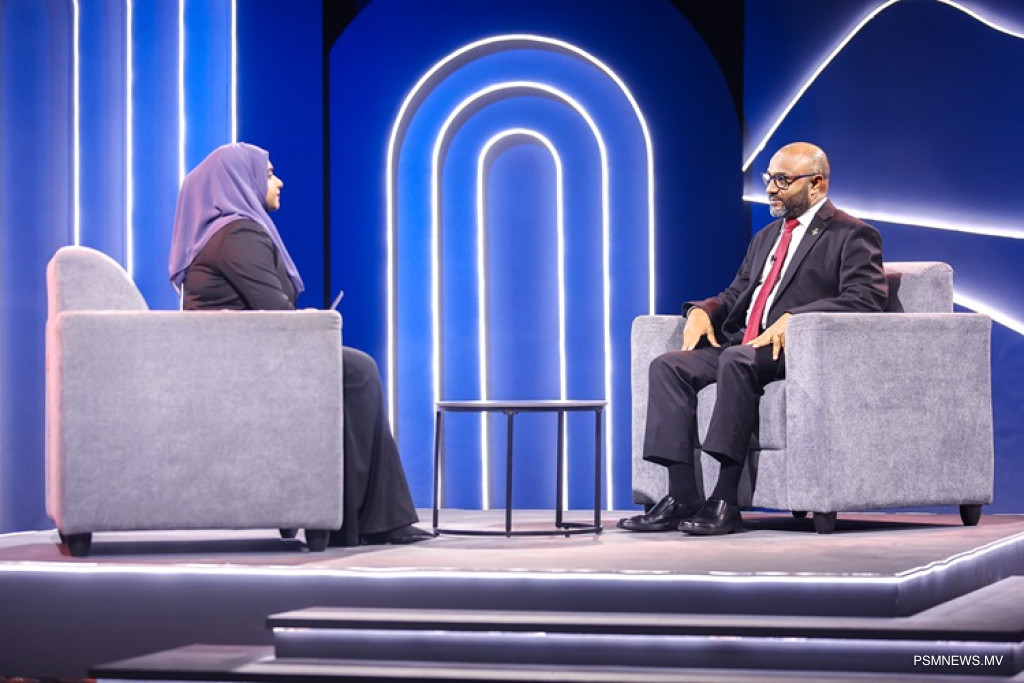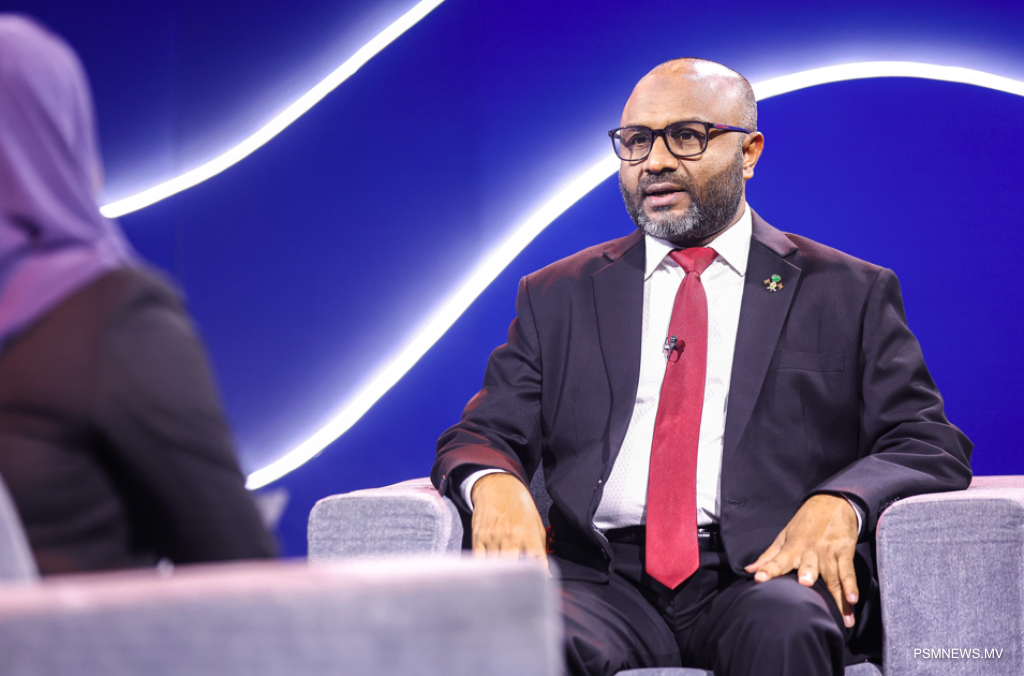President Muizzu Leading USD 64.84 Million Islamic Development Drive Nationwide, Minister Shaheem Affirms

The Ministry of Islamic Affairs is undertaking an ambitious national development programme, with projects valued at more than USD 64.84 million underway across the country, according to Minister Dr Mohamed Shaheem Ali Saeed. The initiative is designed to expand and modernise religious and educational infrastructure, encompassing mosques, Islamic centres, Waqf buildings, and institutions dedicated to the Holy Quran.
Speaking during the ‘Hafuthaa 104’ programme on PSM News, which reviewed the two-year achievements of President Dr Mohamed Muizzu’s administration, Minister Shaheem underscored the scale of the ministry’s undertakings. He confirmed that the portfolio of projects represents an investment exceeding USD 64.84 million, presently being executed nationwide.
The initiatives reflect developmental priorities set by President Muizzu’s administration. Over the past two years, work has commenced on nine new Islamic centres. In addition, five projects have been launched to establish branches of the National Centre for the Holy Quran across the country’s atolls. Minister Shaheem noted that the president has pledged to develop a branch of the Quran Centre on every island in the country.
The construction and renovation of mosques also remain central to the government’s agenda. Minister Shaheem confirmed that 44 mosque projects led by the government are actively progressing, alongside those initiated by private entities. A defining feature of this strategy is the integration of educational facilities, ensuring that new mosques and Islamic centres serve not only as places of worship but also as hubs for learning, equipped with classrooms and libraries.
Attention has also turned to the capital, where efforts are underway to modernise ageing mosques. Renovation and redevelopment work is advancing in Malé, often in collaboration with private organisations. “Projects undertaken in collaboration with private entities are also actively moving forward,” Minister Shaheem said. “Specifically, the redevelopment of older mosques located within the Malé area is currently underway.”

He projected an ambitious timeline, stating that within three years, no venerable mosques in Malé will remain without replacement or modernisation. “We project that within approximately three years, there will be no venerable mosques remaining in this region,” Minister Shaheem assured. “All structures will have been replaced or upgraded to the most contemporary standards.”
A critical component of the ministry’s investment strategy centres on Waqf, or Islamic endowments. Minister Shaheem underlined that Waqf projects are vital to the Islamic community and have historically played a pivotal role in advancing Islamic civilisation. Four specific Waqf projects are planned for the Malé region, including Dar al-Arqam in Malé, a dedicated Waqf building focused on the Holy Quran, and the Dar al-Salam Waqf building in Hulhumalé.
The Waqf strategy extends beyond the capital. Projects planned for the atolls will generate financial proceeds that are decentralised, with profits entrusted to island and city councils for use in local religious affairs. This approach aligns with the ministry’s broader objective of fiscal self-reliance. By leveraging the financial benefits of Waqf projects, the Islamic Affairs Ministry aims to ensure that the operational costs of mosques across the country are sustainably met, reducing reliance on the national budget.
